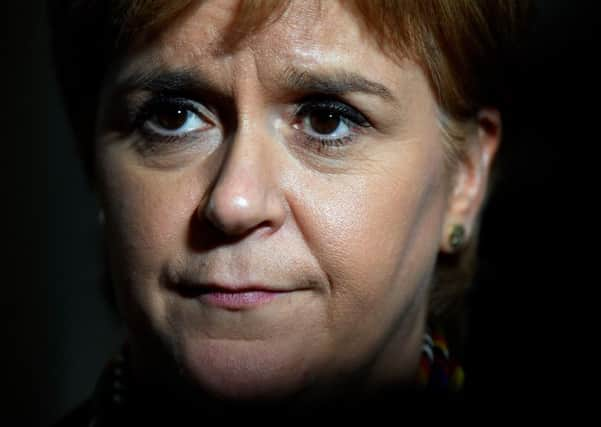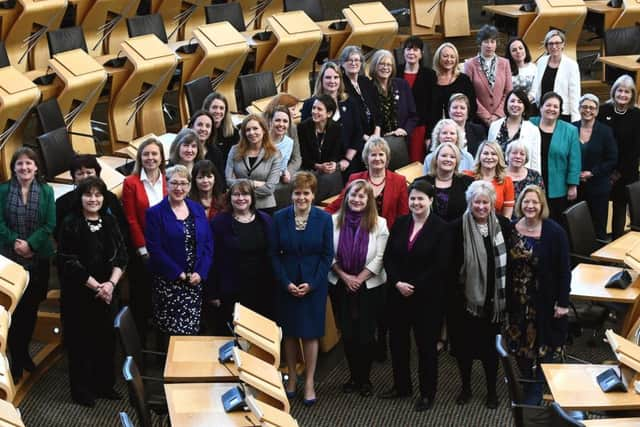Nicola Sturgeon says gender equality '˜is an unwon cause'


The First Minister said it was the duty of the current generation to win the battle for equality as she paid tribute to the sacrifices of the suffragettes and suffragists who won the right for the first women to vote a century ago.
In a debate at Holyrood marking the centenary of the Representation of the People Act, Ms Sturgeon said it was also a moment to look to the future. Leading a government front bench made up entirely of female ministers, she said: “Some women secured the parliamentary vote a century ago, women have had equal voting rights to men for 90 years, but the uncomfortable truth is that gender equality is still an unwon cause – an unwon cause that it is the duty of our generation to win.”
Advertisement
Hide AdAdvertisement
Hide AdShe praised recent achievements, including the passage of the Domestic Abuse Bill and legislation to secure 50 per cent female representation on public boards.


However, the First Minister warned gender capability still was not reflected in equal pay and status, while sexual abuse and harassment were still too widespread. She added that female representation at Holyrood has gone backwards, from 37 per cent of MSPs in 1999 to 35 per cent now.
She said: “I hope that this parliament can play a vital role in consigning these issues to history. I want young people in the future to be able to see them in the same way that we see voting rights for women – a cause that was argued for and won by earlier generations.”
Ms Sturgeon said the best way to honour the “perseverance, courage and self-sacrifice” of the suffragists and suffragettes was by “renewing our own resolve to use the powers we have … to make the world a better place for the girls and young women who are growing up today.
“It falls to us in our generation, through deeds not words, to complete the work that the suffrage work started.”


Labour’s Kezia Dugdale highlighted that there were more statues of animals in Edinburgh than of women.
She said: “The evidence that women are still unequal can be seen everywhere we turn, so we must redouble our efforts to deliver that gender equality. Commemorate yes, celebrate no. I’m too angry and I’m still marching.”
Green MSP Alison Johnstone said: “It’s 2018, women have the vote, but we are far from equally represented. The job is not yet done.
Advertisement
Hide AdAdvertisement
Hide Ad“Let’s honour the memory and legacy of all of these remarkable campaigners and let us work to close the gap.”
Liberal Democrat leader Willie Rennie said his party would work to “remove the barrier to get good women elected” by initiatives such as all-women shortlists for the next Holyrood election.
Meanwhile, Prime Minister Theresa May has indicated that she would have been a suffragist, rather than a more radical suffragette. Suffragists, led by Millicent Fawcett, believed in peaceful campaigning, as opposed to the militant direct action favoured by those led by Emmeline Pankhurst. .